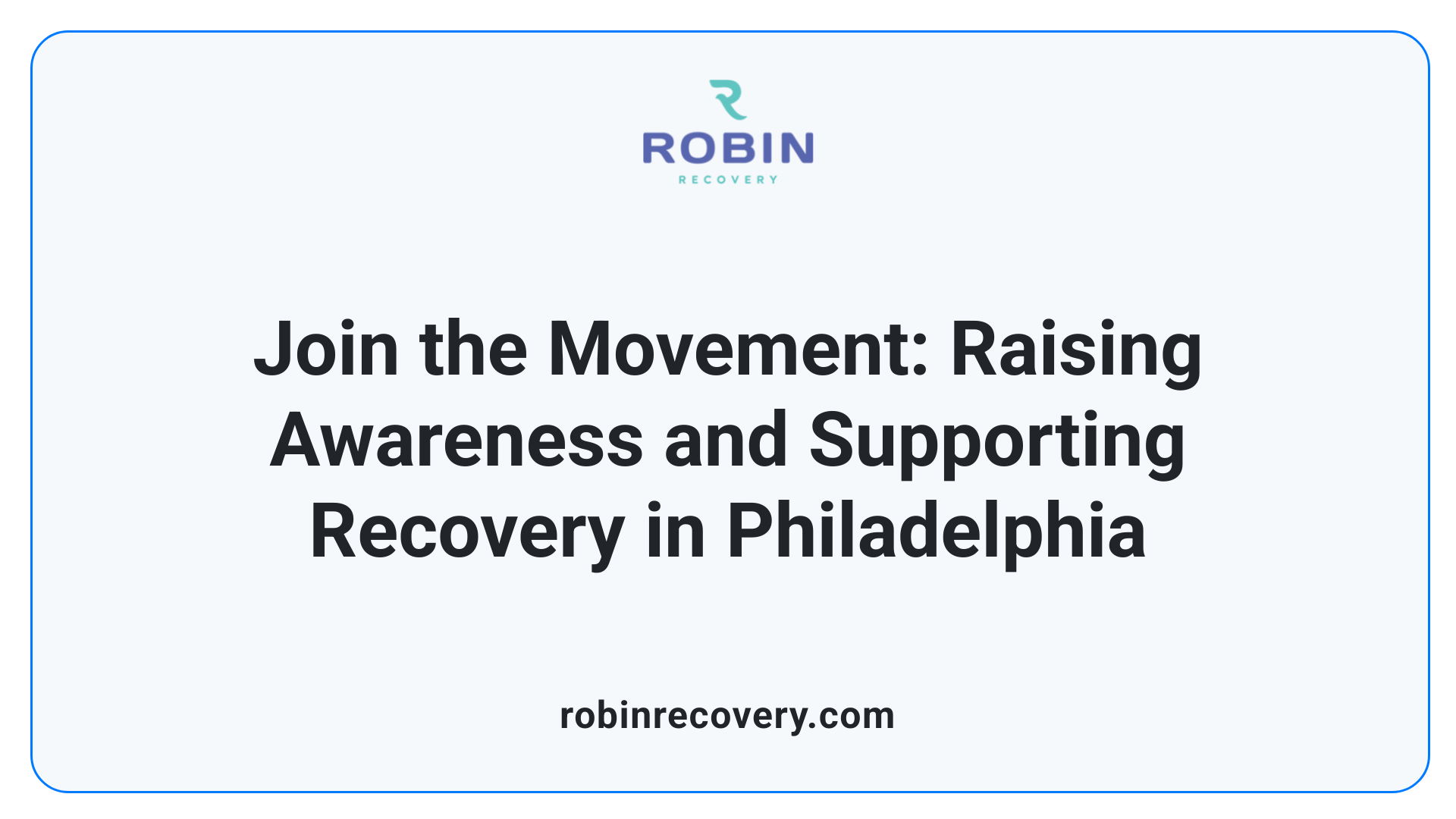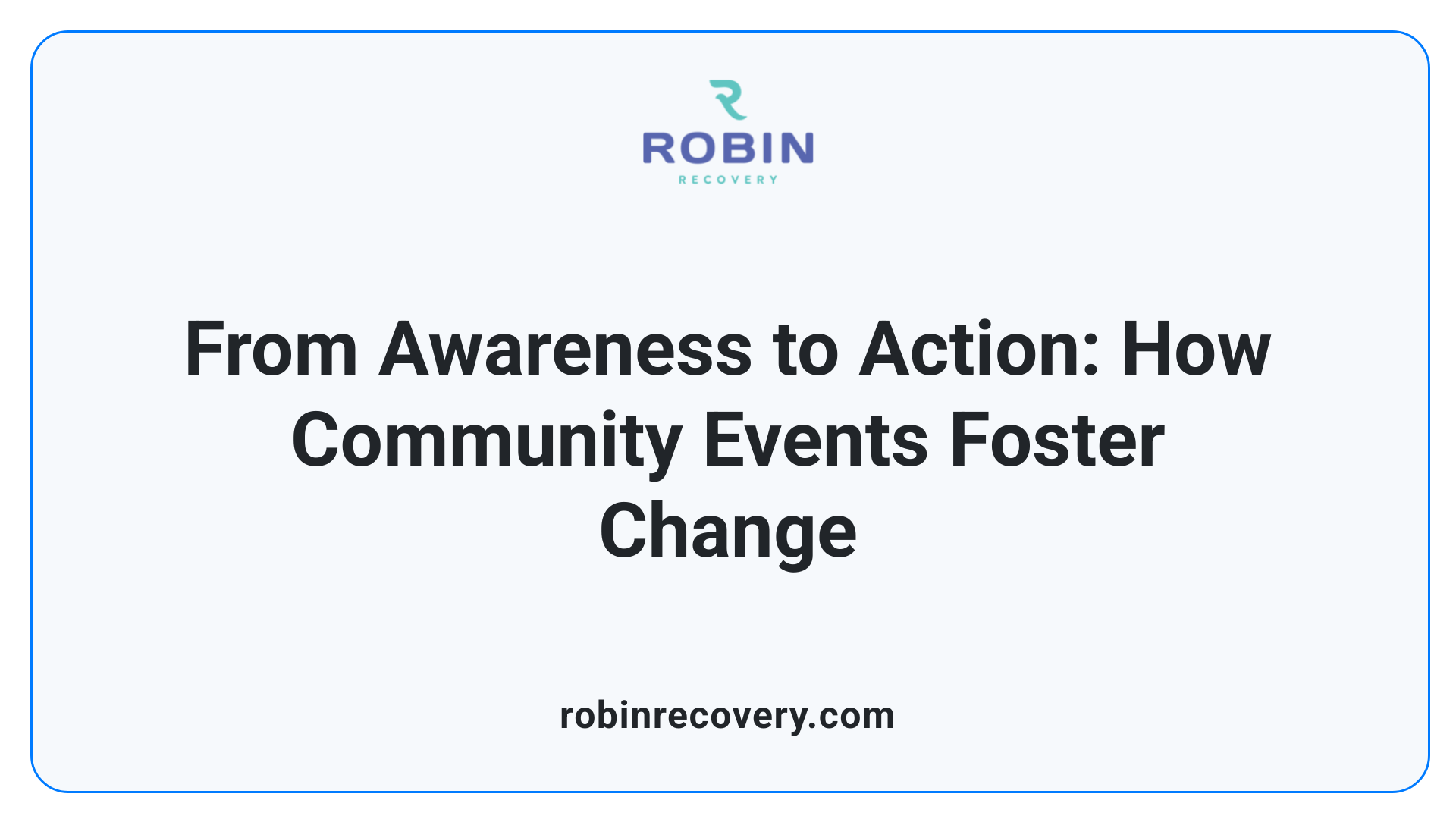Unveiling 'The Anonymous People' in Philadelphia
The Philadelphia premiere of the documentary 'The Anonymous People' marks a significant milestone in raising awareness about addiction recovery, societal perceptions, and community support. This event goes beyond mere film screening, serving as a catalyst for dialogue, education, and advocacy in the city’s ongoing effort to combat stigma and promote health resources.
Event Details and Significance in Philadelphia

When and where is the Philadelphia premiere of 'The Anonymous People' scheduled to occur?
The Philadelphia premiere of 'The Anonymous People' took place at Holy Family University in Far Northeast Philadelphia. The event featured a VIP reception beginning at 5:30 PM, with the main film screening following at 7:00 PM. Tickets for the VIP experience were priced at $75, while general admission tickets cost $15 in advance or $20 on the day of the event. Since its debut, the screening has played a vital role in raising awareness about addiction recovery and combating societal stigma. Organized as part of a broader movement, it has actively involved the community in meaningful efforts to promote understanding and support for individuals overcoming addiction.
What is 'The Anonymous People' documentary about and what are its main themes?
'The Anonymous People' is a compelling documentary that centers on the lives of individuals in recovery from addiction. It sheds light on their personal struggles, successes, and ongoing journeys. The film aims to challenge widespread stigma by emphasizing the importance of peer support and community involvement in recovery. Its core themes include advocating for policy reform, recognizing addiction as a chronic health condition, and highlighting the transformative power of community support networks. The documentary encourages viewers to see recovery as an achievable goal and underlines the need for increased access to treatment, ultimately inspiring hope and understanding.
What are the objectives of the 'The Anonymous People' event in Philadelphia?
The primary goals of the event are to increase awareness about addiction and to demonstrate that millions of Americans are in long-term recovery. It seeks to challenge stigmatizing perceptions of addiction by sharing personal stories and fostering open discussion. The event aims to create a supportive community environment by connecting individuals, families, and organizations through educational sessions, panel discussions, and film screenings. A significant focus is also on connecting attendees with local resources, recovery groups, and treatment options. By doing so, the event advocates for viewing addiction as a health issue deserving compassionate response and policy action, promoting societal shifts towards greater acceptance and support for recovery.
Are there organizations or advocates involved in the Philadelphia screening of 'The Anonymous People'?
Yes, several organizations and advocates played instrumental roles in organizing the Philadelphia screening. The event was supported by the Council of Southeast Pennsylvania and PRO-ACT, both leading local recovery-focused organizations. These groups facilitated community outreach, promoted awareness, and coordinated educational and discussion components. Their involvement underscores the importance of local advocacy in tackling addiction stigma and supporting recovery initiatives. Notably, the event included panels with professionals and individuals with lived experience, further enriching the conversation and strengthening community bonds around the cause.
How does 'The Anonymous People' premiere contribute to societal efforts to address addiction and recovery?
The premiere significantly advances societal efforts by shining a spotlight on the realities of addiction and recovery. It works to dismantle myths, reduce stigma, and promote acceptance through personal stories and community engagement. The event fosters dialogue among attendees, healthcare providers, advocacy groups, and policymakers, encouraging collective action. It also emphasizes the importance of peer-led support and community resources. Such initiatives help shift public perception, promote policy change, and inspire communities to support long-term recovery, ultimately contributing to a more compassionate and informed approach to addiction.
What is the significance of this documentary and its premiere in the broader context of public health?
In the realm of public health, 'The Anonymous People' serves as a catalyst for change by destigmatizing addiction and highlighting it as a treatable health issue. Its premiere provides an opportunity for community education, fostering a better understanding of addiction and recovery. The event encourages policymakers and health professionals to enhance support and resources for individuals affected by addiction. Given that addiction contributes to high mortality rates and social issues like incarceration, such awareness initiatives are vital. The documentary helps mobilize efforts toward comprehensive prevention, treatment, and recovery services, ultimately aiming to improve public health outcomes.
Are there opportunities for community engagement or discussions associated with the Philadelphia premiere of 'The Anonymous People'?
Absolutely. The event featured panels, Q&A sessions, and discussions aimed at promoting dialogue around addiction and recovery. Attendees were encouraged to share personal experiences, ask questions, and connect with local resources. These interactive components fostered a sense of community, support, and empowerment. Such opportunities help break down barriers of misunderstanding and stigma, fostering a collective commitment to supporting those in recovery and advocating for policy change.
Does the event include educational or advocacy components beyond the screening itself?
Yes, beyond the film screening, the event incorporated educational and advocacy activities. These included expert-led panels, live discussions, and informational sessions focused on reducing stigma and promoting understanding of addiction as a health condition. Attendees received information on local recovery resources, support groups, and treatment options. The event also served as a platform to advocate for policy reforms and increased community support, emphasizing the importance of peer-led initiatives and community involvement in recovery efforts. These components ensured that the event was not just informative but also action-oriented towards societal change.
A Historic Step in the Fight Against Addiction Stigma

What is the significance of this documentary and its premiere in the broader context of public health?
'The Anonymous People' and its Philadelphia debut are more than just film screenings—they are pivotal in shifting societal perspectives on addiction. The documentary highlights personal stories from individuals in recovery, emphasizing that addiction is a treatable health condition, not a moral failure. By showcasing the resilience of those who have fought long-term recovery, it fosters empathy and understanding.
This event is embedded within a broader public health strategy aimed at reducing stigma, a major barrier to treatment. When communities view addiction through a humanized lens, they are more likely to support policies that promote access to care, reduce incarceration rates for drug-related offenses, and allocate resources to recovery programs. The inclusion of educational sessions and panel discussions with experts expands this impact, encouraging dialogue around the societal and systemic changes needed.
Moreover, given that addiction is a leading cause of preventable death among youth and a significant contributor to social issues like homelessness and crime, the importance of raising awareness through such documentaries cannot be overstated. They serve as catalysts for community engagement, policy advocacy, and the promotion of a compassionate, public health-focused approach to recovery.
How does the premiere contribute to societal efforts to address addiction?
The Philadelphia premiere of 'The Anonymous People' plays a crucial role in societal change by directly addressing misconceptions about addiction. By spotlighting stories from local individuals who have experienced long-term recovery, the event underscores that recovery is a reality accessible to many.
This visual and narrative approach helps demystify addiction, reducing shame and fostering societal acceptance. It encourages community members, local organizations, and policymakers to support initiatives that provide treatment, peer support, and harm reduction services.
Furthermore, the event acts as a rallying point for advocacy efforts, pushing for reforms that improve access to healthcare and reduce criminalization. When communities see mass support for recovery narratives, it helps create an environment conducive to policy change, funding allocation, and the development of supportive networks.
What impact does the event have on community awareness and engagement?
Community awareness is significantly amplified through the event's open forum format, which brings together diverse groups including recovery advocates, health professionals, and impacted families. The event stimulates dialogue about addiction, recovery, and societal misconceptions.
By providing a platform where personal stories are shared and resources are highlighted, the event empowers community members to take active roles in supporting those affected. Educational sessions and resource tables enable attendees to learn about local organizations and support groups, facilitating ongoing involvement.
The event also fosters a sense of solidarity and collective responsibility, which is vital for long-term change. As community members become more informed and supportive, the chances for effective recovery programs and policy reforms increase, leading to a healthier, more compassionate community.
What is the importance of incorporating advocacy and education in such events?
Advocacy and education are fundamental to the success of initiatives like this documentary premiere. Education helps dispel myths about addiction, clarifies that it is a complex health condition, and informs attendees about available treatment options and community resources.
Advocacy efforts are crucial in translating awareness into tangible action—pushing for legislative reforms, increased funding for recovery programs, and the removal of systemic barriers.
When combined, education and advocacy empower individuals and communities to challenge stigma, champion recovery-friendly policies, and support individuals on their recovery journeys. These elements are essential for fostering a culture where addiction is met with compassion and understanding rather than shame.
| Aspect | Description | Impact |
|---|---|---|
| Public Health | Tackling addiction stigma and promoting recovery | Reduces societal shame, encourages treatment seeking |
| Community Engagement | Open forums, resource sharing, local stories | Builds support networks, fosters collective responsibility |
| Advocacy & Education | Informing the public, pushing policy reforms | Enhances access to care, systemic change |
| Local Resources | Connections with Philadelphia-based support groups | Supports ongoing recovery efforts and resource mobilization |
These efforts collectively aim to transform perceptions and improve recovery outcomes in Philadelphia, setting an example for broader societal change.
Looking Ahead: The Power of Community and Awareness
The Philadelphia premiere of 'The Anonymous People' exemplifies the city’s ongoing commitment to tackling addiction stigma and supporting recovery. Through film, dialogue, and advocacy, the event fosters a compassionate understanding of addiction as a health issue, promotes community involvement, and encourages policy reform. As Philadelphia continues to lead by example, this event sets a precedent for future initiatives to build resilient, informed, and supportive communities. The efforts demonstrate that awareness, compassion, and collective action are vital components in the fight against addiction, inspiring hope for a healthier, stigma-free future.
References
- The Anonymous People Philadelphia Premiere
- The Anonymous Lover - Opera Philadelphia
- Addiction Recovery and “The Anonymous People”
- Beautiful/Anonymous with Chris Gethard Presented as part of the ...
- The Anonymous Lover - Opera Philadelphia
- The Anonymous People Philadelphia Premiere - Prescott House
- Pre-Screening Release of The Anonymous People - Patch
- The Anonymous People Philadelphia Premiere - Dove Recovery

.svg)

.svg)

.svg)
.svg)








































































































